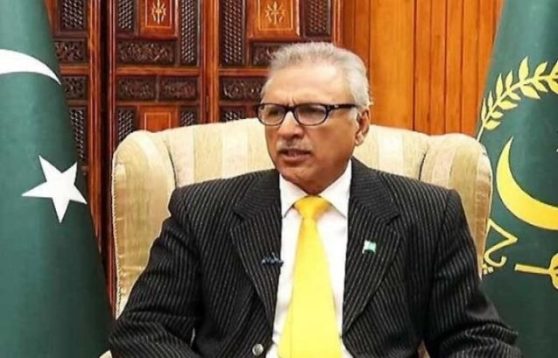Pakistan’s President Arif Alvi has refused to sign into law two bills that would give authorities more power to prosecute people for acts against the state and military, a move the law ministry said was unconstitutional.
The bills have already been passed by both houses of Pakistan’s parliament, but Alvi is a member of former Prime Minister Imran Khan’s Pakistan Tehreek-e-Insaf (PTI) party, which opposes the coalition government that passed the two bills.
“As God is my witness, I did not sign Official Secrets Amendment Bill 2023 & Pakistan Army Amendment Bill 2023 as I disagreed with these laws,” Alvi posted on X, formerly known as Twitter.
“I confirmed from them many times that whether they have been returned and was assured that they were.”
“However I have found out today that my staff undermined my will and command … I ask forgiveness from those who will be affected.”
The Ministry of Law and Justice said Alvi’s decision was of “grave concern”.
“The president has two options: either give assent or refer the matter to the parliament with specific observations,” the ministry said in a statement, adding Alvi had not fulfilled either option.
“Such a course of action is against the letter and spirit of the constitution,” it said.
According to Pakistan’s constitution, if the president doesn’t sign a draft bill or return it back with his observations or objections within 10 days after it has already been through the two houses, it will become law.
“As the president didn’t sign and return the bill within 10 days, it became a law,” caretaker Law Minister Ahmad Irfan Aslam told a news conference.
The ‘cypher’
Alvi’s comments come a day after Shah Mehmood Qureshi, former Pakistan foreign minister and a close aide of Khan, was arrested after officials accused him of misusing a diplomatic cable for political gain.
Khan – who is currently in jail – had claimed the United States was behind a conspiracy to topple his government as he tapped into anti-American sentiment in a bid to mobilise support ahead of a no-confidence vote last April.
He resigned after losing the vote and later said he was aware of a secret cable – known as the “cypher” – that showed the US was behind his ouster. The former prime minister never revealed the content of the cable and later walked back his allegations against the US.
Earlier this month, The Intercept, a US-based media organisation, published the content of the “cypher”, which suggests the US administration wanted to remove Khan from power in April.__Courtesy Al Jazeera





